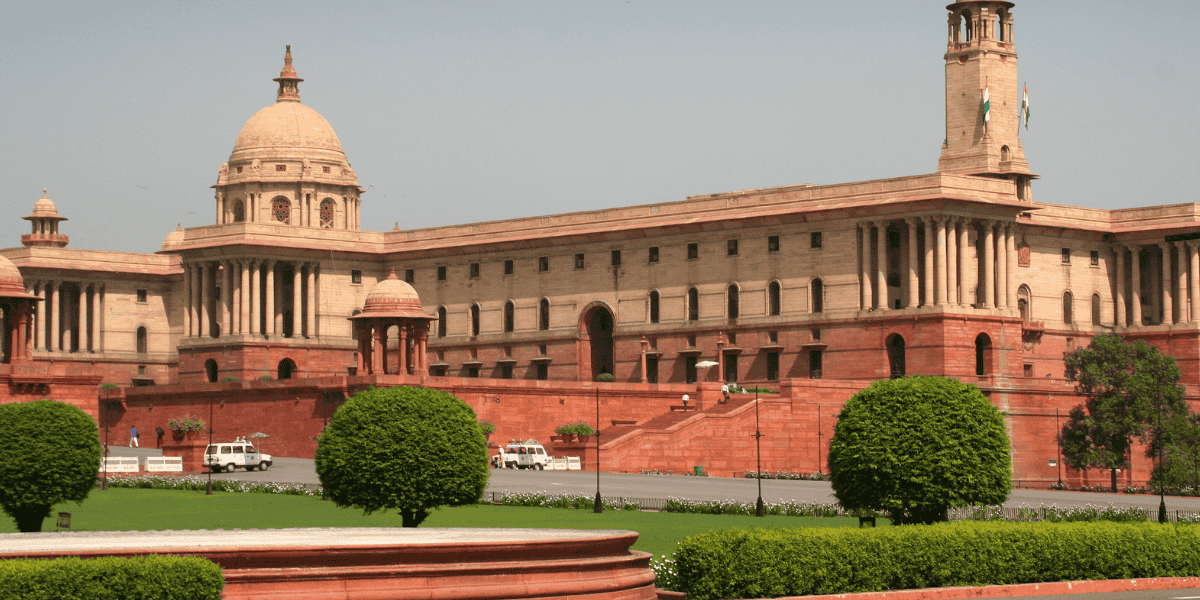India’s Finance Minister Nirmala Sitharaman presented the Union Budget 2025-2026 on 1 February 2025 to the parliament, which included the Finance Bill 2025 (The Bill) outlining amendments to various direct and indirect taxes as well as various other proposals.
The Finance Minister also announced that the new Income Tax Bill will be presented to the parliament on 10 February 2025. The new Income Tax Bill proposes various changes which include a new transfer pricing block assessment option and revised personal income tax slabs under the Finance Bill 2025. Other key highlights include updates to capital gains tax and withholding tax provisions reforms, and an expanded scope for reporting virtual digital assets. The Bill also introduces additional tax measures to improve the overall tax framework, such as customs duties and goods and services tax (GST).
The provisions of Finance Bill 2025 relating to direct taxes seek to amend the Income Tax Act 1961 to continue reforms in the direct tax system through tax reliefs, removing difficulties faced by taxpayers and rationalisation of various provisions.
Transfer pricing
The Finance Bill 2025 proposes allowing taxpayers to determine the arm’s length price (ALP) for three years for international or specified domestic transactions instead of the annual system. It also plans to expand the scope of safe harbour rules under transfer pricing.
Capital gains
Changes to capital gains taxation include redefining “capital assets” to include securities and ensure income from specific investment funds is taxed as capital gains rather than business income.
The Bill aims to increase the capital gains tax rate for non-residents and certain funds on long-term assets to 12.5% (up from 10%).
It also proposes extending the tax exemption on specific short-term capital gains for sovereign and pension funds to 31 March 2030 from 31 March 2025.
Virtual digital assets (VDAs)
The Bill proposes amending the definition of virtual digital assets (VDAs) to include crypto assets and increasing reporting obligations for VDAs.
Withholding tax (WHT)
The Bill proposes simplifying withholding tax (WHT) and tax collection at source (TCS) rules.
The key changes include increasing the withholding tax rate threshold on rent to INR 50,000 per month (currently INR 240,000 per year), abolishing the 0.1% TCS on the sale of goods, and removing the provision for higher WHT/TCS rates for payees who have not filed tax returns.
The Bill also proposes that the WHT deduction threshold be increased for interest to senior citizens, lottery winnings, professional fees, rent, and more. Additionally, the TCS threshold on overseas remittances will be raised to INR 1,000,000 from INR 700,000, and the TCS on overseas remittances for education funded by loans will be removed.
Start-up incentives
The Bill proposes extending the three-year 100% tax exemption for start-ups under the Income Tax Act by five years, making it available to start-ups incorporated before 1 April 2030.
Loss carryforward
The Bill proposed amending the loss carryforward rules in amalgamation to allow accumulated losses of the predecessor entity to be carried forward for up to eight assessment years after the year the loss was first computed.
International Financial Services Centre (IFSC) benefits
The Bill proposes introducing International Financial Services Centre (IFSC) benefits for ship-leasing units, insurance offices, and treasury centres of global companies, with the deadline for claiming these benefits extended to 31 March 2030.
Custom duties
The Bill proposes to simplify tariff rates for industrial goods, reducing them to just eight, including a zero rate and exemptions or concessions on essential customs duty (BCD) for life-saving drugs. The Bill also proposed providing duty concessions on minerals, electronic goods, and capital goods for textiles, EVs, and mobile phones. Additionally, the Bill proposed a two-year time limit for finalising provisional assessments.
Goods and services tax (GST)
The Bill proposes including the distribution of input tax credit (ITC) by input service distributors (ISD) for inter-state supplies under reverse charge mechanism (RCM), a track-and-trace mechanism for specified goods with unique identification marks and penalties for non-compliance, and a requirement to deposit 10% of the penalty amount for appeals involving penalties without tax demands.
Revised individual income tax brackets/rates
The Bill proposes revised individual income tax brackets and rates, which are as follows:
- Income up to INR 400,000: No tax;
- Income between INR 400,000 and INR 800,000: 5% tax;
- Income between INR 800,000 and INR 1,200,000: 10% tax;
- Income between INR 1,200,000 and INR 1,600,000: 15% tax;
- Income between INR 1,600,000 and INR 2,000,000: 20% tax;
- Income between INR 2,000,000 and INR 2,400,000: 25% tax;
- Income above INR 2,400,000: 30% tax.
Individual tax rebates
The bill proposed amendments to the default tax regime, which included raising the tax rebate threshold for resident individuals from the current INR 700,000 to INR 1,200,000.
Other tax measures
The Finance Bill 2025 also includes proposals for introducing presumptive taxation at 25% of revenue for non-residents providing services or technology to electronics manufacturing in India and extending the tonnage tax scheme to inland water transport vessels.
The Bill also provides clarification that non-residents purchasing goods in India for export will not have a significant economic presence (SEP) in India and extends the deadline to file updated tax returns to 5 years (currently 3 years) at the end of each financial year.
If approved, the proposals will take effect from the assessment year 2026-27 (financial year 2025-26).
The Bill will come into force upon its enactment into law.
















